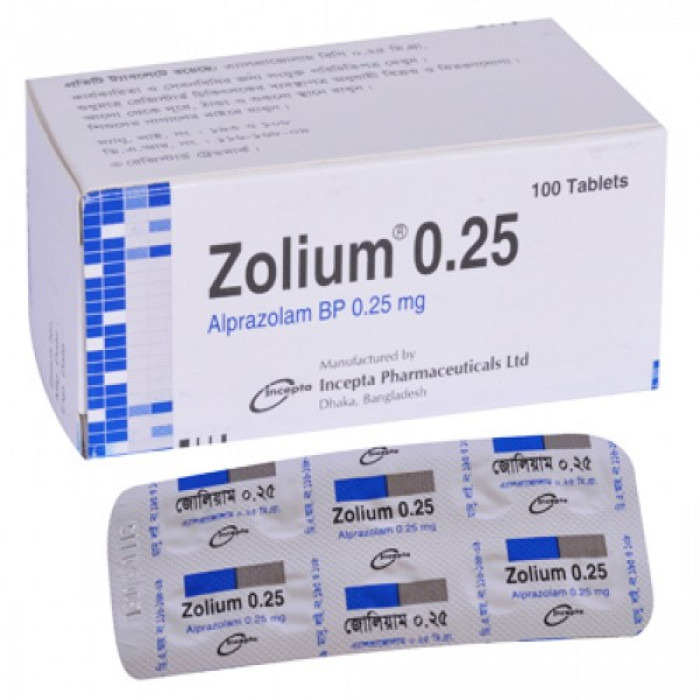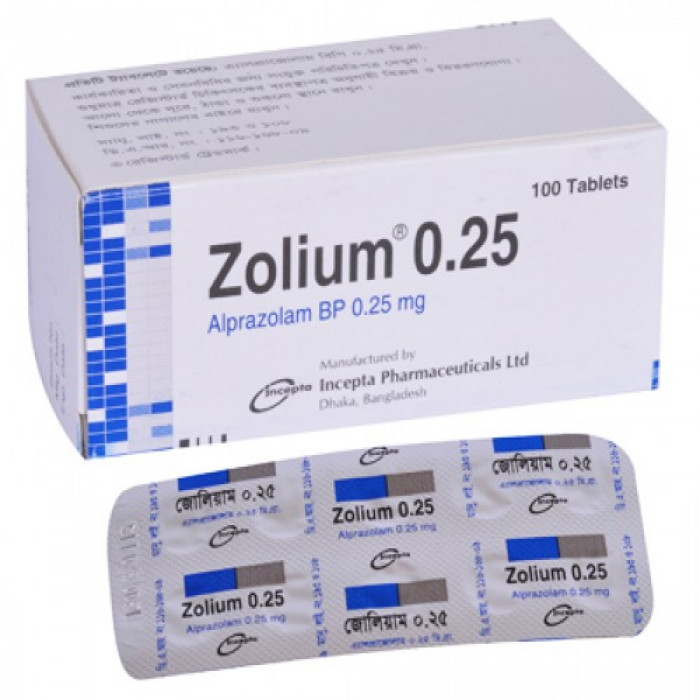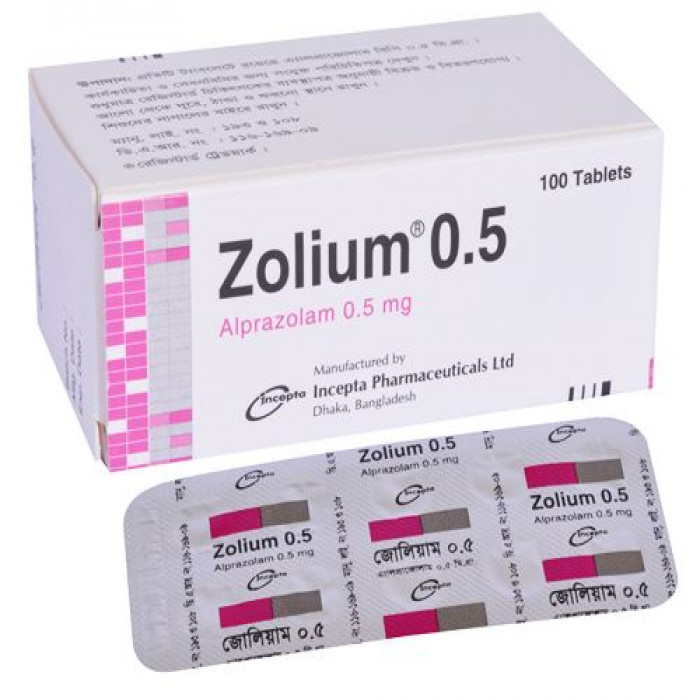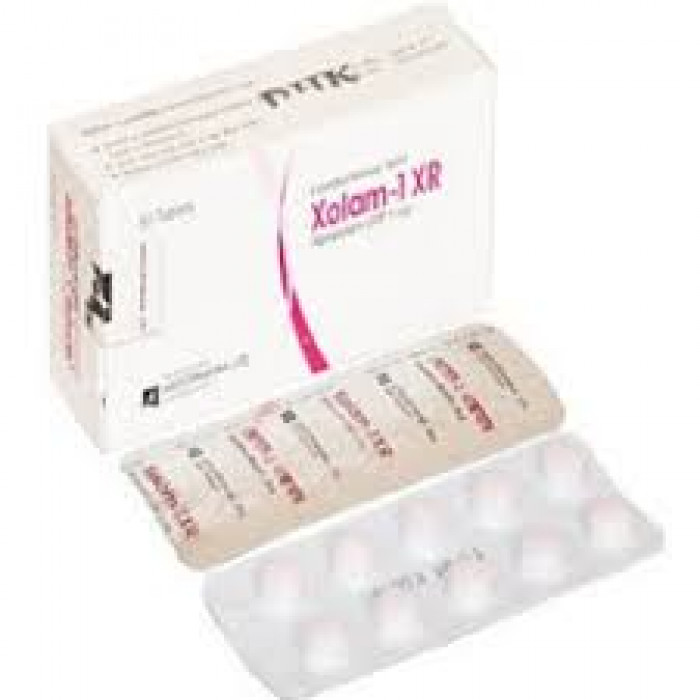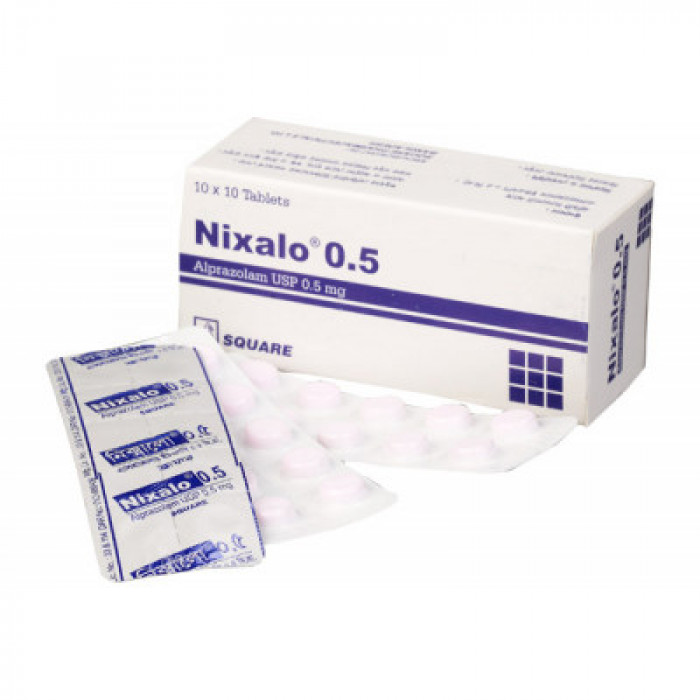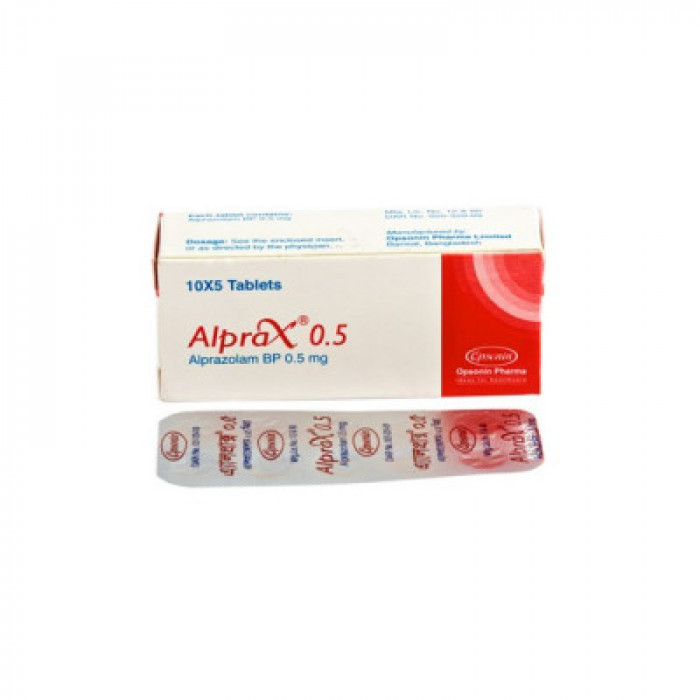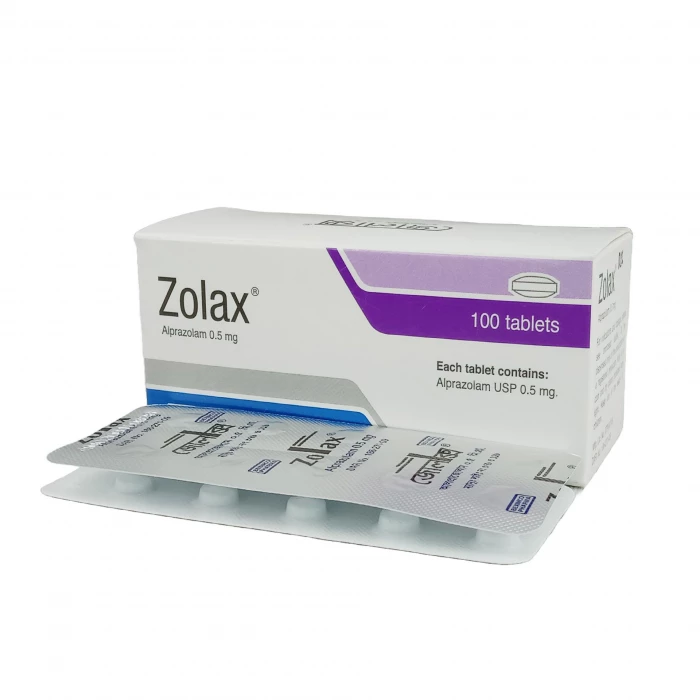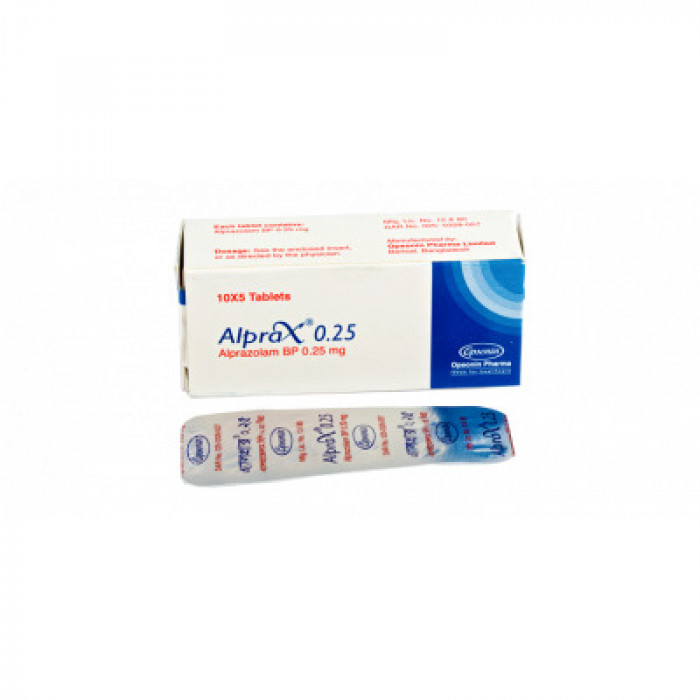
✔ 100% Authentic Product
👁️ Currently Viewing 2562
Tablet Manufacturer/Distributor: Opsonin Pharma Limited Generic Name: Alprazolam 0.25 mg Tablet
📄Prescription Required
Discount
Price: ৳ 19
MRP:
৳
20
5%
Off

100% Genuine Products, Guaranteed

Safe & Secure Payments, Always

Fast, Secure & Efficient Delivery

Proper Packaging
 Cash on Delivery - All over Bangladesh
Cash on Delivery - All over Bangladesh Regular Delivery - 12-24 Hours, Dhaka City* Charge Tk.39-59
Regular Delivery - 12-24 Hours, Dhaka City* Charge Tk.39-59 Regular Delivery - 24-48 Hours, Other Cities* Charge Tk.99-110
Regular Delivery - 24-48 Hours, Other Cities* Charge Tk.99-110
🌙 রমযান অফার 🌙
 ফ্রি ডেলিভারিঃ - ৭৯৯ টাকা+ অর্ডারে, ঢাকা
শহরে
ফ্রি ডেলিভারিঃ - ৭৯৯ টাকা+ অর্ডারে, ঢাকা
শহরে ফ্রি ডেলিভারিঃ - ২৭৯৯ টাকা+ অর্ডারে, ঢাকার
বাহিরে
ফ্রি ডেলিভারিঃ - ২৭৯৯ টাকা+ অর্ডারে, ঢাকার
বাহিরে
📲 মোবাইল অ্যাপ অর্ডারে সাশ্রয় বেশী
-
Google Play Store থেকে ডাউনলোড
-
Apple Store থেকে ডাউনলোড
100% Genuine Products, Guaranteed
Safe & Secure Payments, Always
Fast, Secure & Efficient Delivery
Proper Packaging
 Cash on Delivery - All over Bangladesh
Cash on Delivery - All over Bangladesh Regular Delivery - 12-24 Hours, Dhaka City* Charge Tk.39-59
Regular Delivery - 12-24 Hours, Dhaka City* Charge Tk.39-59 Regular Delivery - 24-48 Hours, Other Cities* Charge Tk.99-110
Regular Delivery - 24-48 Hours, Other Cities* Charge Tk.99-110 ফ্রি ডেলিভারিঃ - ৭৯৯ টাকা+ অর্ডারে, ঢাকা
শহরে
ফ্রি ডেলিভারিঃ - ৭৯৯ টাকা+ অর্ডারে, ঢাকা
শহরে ফ্রি ডেলিভারিঃ - ২৭৯৯ টাকা+ অর্ডারে, ঢাকার
বাহিরে
ফ্রি ডেলিভারিঃ - ২৭৯৯ টাকা+ অর্ডারে, ঢাকার
বাহিরে- Google Play Store থেকে ডাউনলোড
- Apple Store থেকে ডাউনলোড
🌙 রমযান অফার 🌙
📲 মোবাইল অ্যাপ অর্ডারে সাশ্রয় বেশী
✅ Description:
Indications of Alprax 0.25
Anxiety disorder is treated with alprazolam.
Anxiety alleviation in the short term Anxiety and depression are linked.
Panic disorder, whether or not agoraphobia is present.
Pharmaceutical Name
Pharmacology
Alprax 0.25 is a triazole analog that belongs to the 1,4-benzodiazepine medication family. It works as an anxiolytic, hypnotic, and anticonvulsant. The Gamma Aminobutyric Acid (GABA)-benzodiazepine receptor complex is thought to be involved in the action of alprazolam. It has a dose-dependent CNS depressive effect, similar to other benzodiazepines, ranging from moderate impairment of task performance to hypnosis.
Dosage & Administration of Alprax 0.25
Treatment should be initiated with a dose of 0.25 to 0.5 mg three times daily. Depending on the response, dose may be increased at intervals of 3 to 4 days in increments of no more than 1 mg/day. The maximum dose should not exceed 4 mg/day. Occasional patients with panic disorder may need as much as 10 mg a day to achieve a successful response and in these cases periodic reassessment and consideration of dosage adjustment is required.
Dosage should be individualized for maximum beneficial effect with the lowest possible dose. If side-effects occur at starting dose, dose may be lowered. When discontinuing therapy, dosage should be reduced gradually by no more than 0.5 mg every three days.
In elderly patients or in patients with advanced liver disease, the usual starting dose is 0.25 mg, two or three times daily and may be gradually increased if needed and tolerated.
Alprazolam 1 mg should be administered once daily, preferably in the morning by patients who are on multiple dosage regimens of Alprazolam 0.25/0.5 mg. The tablets should be taken intact, they should not be chewed, crushed, or broken.
Interaction of Alprax 0.25
Concomitant use of other psychotropic medications, anticonvulsants, antihistaminics, alcohol, and oral contraceptives may exacerbate Alprazolam's CNS-depressant effect.
Side Effect of Alprax 0.25
If side effects do develop, they normally arise at the start of treatment and lessen as the patient continues to take the drug. Drowsiness and light-headedness are the most common adverse effects. Depression, headache, disorientation, dry mouth, constipation, and other adverse effects are possible.
Pregnancy & Lactation
Alprazolam is classified as a pregnancy category D drug, which indicates it should be avoided during pregnancy. Alprazolam, like other benzodiazepines, is thought to be secreted in breast milk. As a result, breastfeeding should be avoided by moms who must take Alprazolam.
Precautions & Warnings
Because Alprazolam can create psychological and physical dependence, increasing the dose or abruptly stopping treatment without seeing a doctor is not recommended. The length of treatment must be decided by the doctors. Patients with hepatic or renal illness, chronic pulmonary insufficiency, or sleep apnea should use alprazolam with care.
Therapeutic Class
Benzodiazepine sedatives
Storage Conditions
Keep the temperature below 30°C and away from light and moisture. Keep out of children's reach.
⚠️Disclaimer:
At ePharma, we’re committed to providing accurate and accessible health information. However, all content is intended for informational purposes only and should not replace medical advice from a qualified physician. Please consult your healthcare provider for personalized guidance. We aim to support, not substitute, the doctor-patient relationship.




